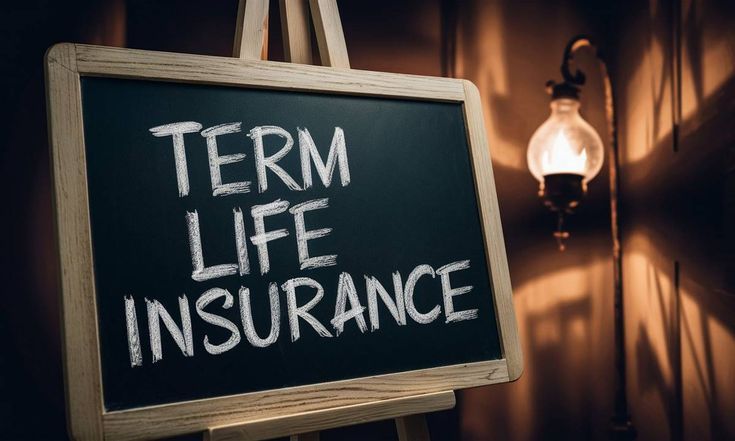What is term life insurance? Discover the simple meaning, benefits, costs, and how it protects your family in this beginner-friendly guide.
What Is Term Life Insurance? A Simple and Complete Guide
Term life insurance is the kind of life insurance that pays your family if you die within a certain period of time, say 10, 20, or 30 years. It is one of the simplest, least expensive ways to protect your loved ones financially. So what is term life insurance? It’s a plan that makes sure your family can be safe — even if something happens to you and your money isn’t there.
Knowing what term life insurance is can help you make a wise decision. It’s great for young families, first-time parents or anyone who wants some protection without a hefty investment.
What Is Term Life Insurance?
Life Insurance You And The Life Insurance Policy – A Form Of Contract Term Life Insurance is a type of contract between an individual and a company providing this type of insurance. You agree to pay a specific amount of money each month or year. In exchange, the company pledges to pay your family a large sum of money, known as a death benefit, if you die while the policy is in force.
Most individuals select term life insurance because it is:
- Easy to understand
- Low in cost
- Good for short-term needs that might last only a few years, such as paying off a home loan or raising children
Why Is Term Life Insurance Necessary?
This insurance matters because it can help your family pay big bills if you are not alive. These costs might include:
- Funeral expenses
- Daily living expenses
- College fees for children
- Paying down debt such as home or car loans
Facts:
Roughly 60 percent of Americans have life insurance in some form.
For people under 40, term life tends to be the most affordable.
How Does Term Life Insurance Function? (Step-by-Step)
- You Choose a Term – Typical terms include 10, 20 or 30 years.
- You Choose a Coverage Amount : This is the sum of money that your family will receive.
- You Pay a Premium — This fee is paid monthly or annually.
- You Stay Covered – If you die during the term, your family is covered.
- Term Ends – The policy ends with no payout if you outlive the term.
Tip: Pick goals that line up with your big goals, like kids growing up or paying off a mortgage.
Types of Term Life Insurance
There are several types of term life insurance. And they all have their characteristics.”
Level Term
This is the most common. Both the payment and the coverage remain constant for the full term.
Decreasing Term
The coverage amount declines as the years pass, typically corresponding to a declining debt like a mortgage.
Renewable Term
You can extend the policy at the time it lapses, but the premium will be higher.
Convertible Term
The term plan can be converted to a permanent plan without medical test.
Comparison Table: Types of Term Life Insurance
| Type | Payment Stays Same? | Coverage Changes? | Can Renew or Convert? |
|---|---|---|---|
| Level Term | Yes | No | Maybe |
| Decreasing Term | Yes | Yes (Decreases) | No |
| Renewable Term | No (Increases) | No | Yes (Renewable) |
| Convertible Term | Yes | No | Yes (Convertible) |
What is the Cost of Term Life Insurance?
And the price of term life insurance is ultimately all about how old you are, how healthy you are, and how much coverage you buy. It is also often less expensive than whole life insurance.
- Average Costs (Per Year):
- Healthy 30-year-old (20-year, $500,000 policy): $200-$250
- Otherwise healthy 40-year-old: $300-$400
Key Factors Affecting Cost:
- Age
- Gender
- Health
- Smoking habits
- Length and amount of coverage
Fact: Smokers may have to pay three times more than nonsmokers.
Term Life vs Whole Life Insurance
Whole life insurance lasts your entire life and costs more. Term life lasts for a set period and is cheaper.
| Feature | Term Life Insurance | Whole Life Insurance |
| Duration | Fixed (10–30 years) | Lifetime |
| Cost | Low | High |
| Builds Cash Value? | No | Yes |
| Best For | Short-term needs | Lifelong coverage |
Tip: If you want simple and affordable coverage, term life is usually the better choice.
Who Should Purchase Term Life?
Here’s when term life insurance might make sense for you:
- Have children or dependents
- Have a home loan
- Are the main income earner
- Want low-cost protection
It’s great for young families, or for people who just need coverage for a certain period of time.
Common Terms in Term Life Insurance
| Term | Meaning |
| Death Benefit | The money paid to your family if you pass away |
| Premium | The monthly or yearly cost of the insurance |
| Beneficiary | The person who will get the money |
| Term | The length of time the insurance lasts |
| Underwriting | The process where the insurance company checks your health |
Advantages of Term Life Insurance
- Cheap – Payments starting at $10 per month
- Simple – Easy to understand
- Flexible – Select your term and amount of coverage
- Peace–Peace of mind that your family is taken care of, if the worst should happen
FAQs: Term Life Insurance What Is Term Life Insurance?
Q1 Can I get term life insurance with no exam?
Yes, some policies don’t require a medical test, but those might be more expensive.
Q2 What happens when the term comes to a close?
Your coverage lapses and no money is ever paid if you don’t, isn’t either.
Q3 Can I cancel my term life insurance?
Yes, you can cancel anytime. Some of these companies will refund the unused portion of your premium.
Q4 Is it better to get term life or whole life?
It depends on your needs. Term life is less expensive and more straightforward. Whole life is for Fidelity pure math.
Q5 How long should my term be?
Select a term that aligns with your most significant financial goals (raising kids, paying off a loan, and so on).
Conclusion: Why To Consider Term Life Insurance
So, what is term life insurance? It’s one of the cheapest and simplest ways to help protect your family financially. If you die during the term of the policy, your family receives money to help pay bills, for education and more. Term life is perfect for those who need coverage for a specific period for less money. It offers some peace of mind without blowing your budget.
To learn more and compare policies, visit the National Association of Insurance Commissioners.


